The Salambala Conservancy is one of Namibia’s most biologically diverse areas, encompassing a rich combination of mopane/terminalia woodlands, floodplains and riverine habits. More than 400 species of birds are documented to be present in the conservancy, while the forest and floodplains provide habitat to increasing numbers of African mega-fauna such as elephant, plains zebra, common impala, kudu, and buffalo.
Formation of the Salambala Conservancy commenced in 1995 through the support of the Ministry of Environment and Tourism (MET), the NGO, Integrated Rural Development and Nature Conservation (IRDNC), and the WWF Living In A Finite Environment (LIFE) Project. Development of the Salambala Conservancy built upon the strong commitment and desire of the Basubia traditional authorities and people to re-establish their dwindling wildlife population in order to enhance the social, cultural and economic welfare of its people. At the commencement of the development effort the Salambala Forest (the central third of the Salambala Conservancy) was settled by 17 families and provided seasonal grazing for more than 2 000 head of cattle. The Forest’s known wildlife population in 1995 was seven impala, less than 20 kudu, and seasonal transient populations of such species as elephant and buffalo.
In order to return wildlife to the Conservancy the Basubia people, through the Salambala Conservancy, decided to establish a Core Wildlife Area (CWA) around most of the Salambala Forest for the dedicated purpose of re-establishing the Forest’s once verdant wildlife populations and initiating tourism enterprises that could capitalize on the returning wildlife. In this regard, 16 Basubia families voluntarily moved from the CWA when it was established in 1995, and the area was zoned exclusively for wildlife and tourism purposes and closed to livestock grazing. Concomitantly, the Conservancy hired and trained eight Community Game Guards (CGG’s) and three Community Resource Monitors (CRM’s) to extend awareness to the broader community about the value of wildlife for generating income and employment. Soon after, the CWA area was fenced on three sides with a cattle-proof fence and two dedicated wildlife waterpoints were established inside the CWA. In 1999, a game introduction boma was built and an initial introduction of 80 common impala was jointly sponsored by the MET and WWF LIFE Project. A second introduction of 90 impala was made in 2001.
In 1998, the Salambala Conservancy also commenced work with the MET Directorate of Forestry (DOF) in an inventory of its forest resources, and today the Conservancy and DOF are in the final process of approving Namibia’s first community forest management plan. More recently, the Conservancy has commenced discussions with the Ministry of Fisheries and Marine Resources towards better management of the fishery resources found in the bounding Chobe River.
In 1999 a community campsite was also constructed. The site has four stands with running water, ablutions and a central dining area.
